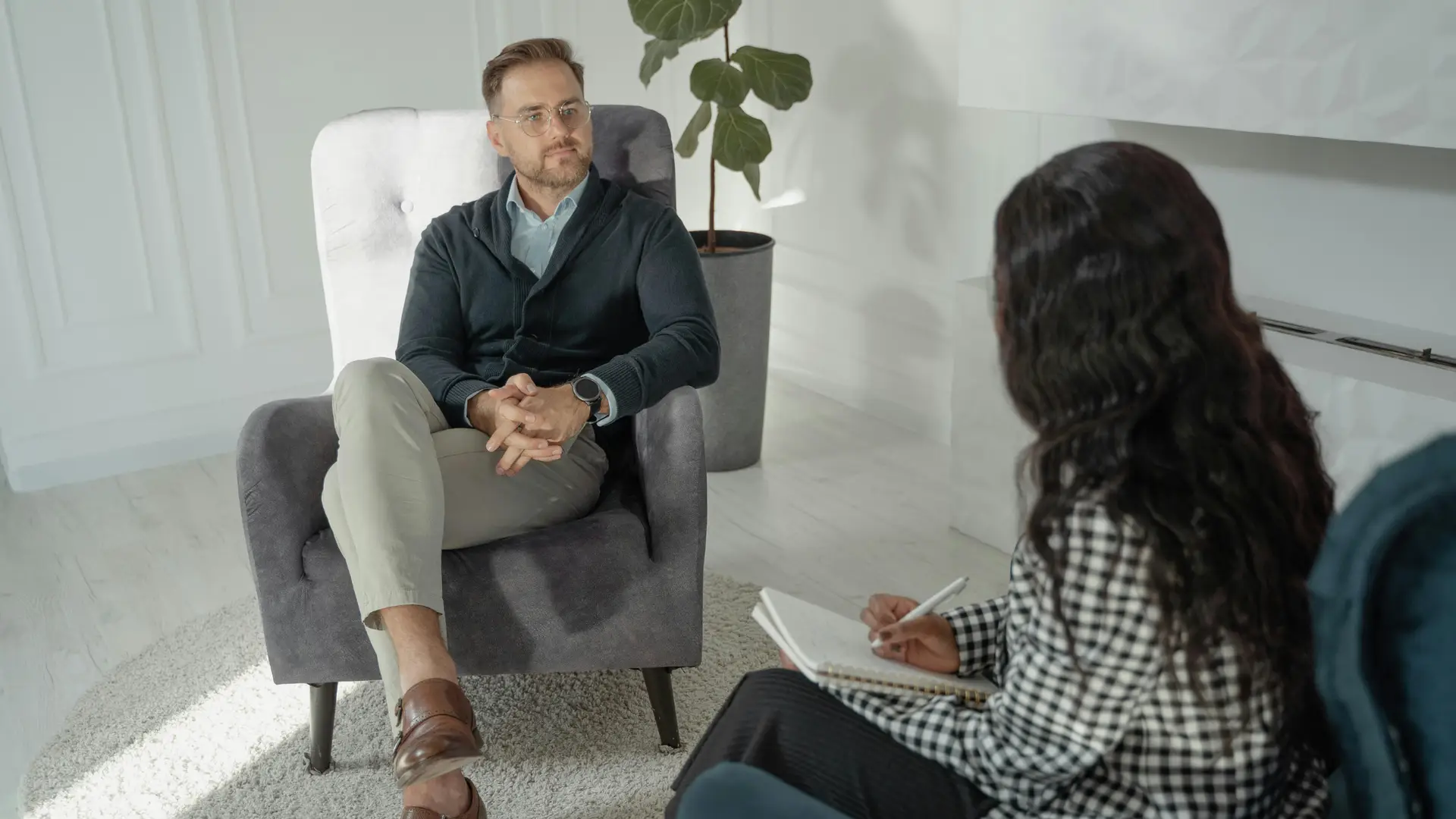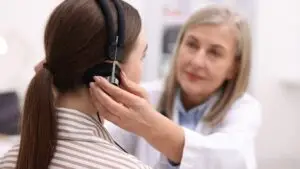If you live in Queens, you’ve probably noticed how easy betting has become: games on TV, odds on your phone, friendly wagers in your group chat. For many New Yorkers, it’s harmless entertainment. But for some, gambling slips from “just for fun” to a constant pull that won’t let go. That’s where Gambling Addiction Counseling in Queens makes a real difference. When the shift happens, the fallout reaches far beyond wins and losses. As therapists, we see the full map: anxiety that hums in the background, mood swings tied to streaks, tension at home over money and honesty, and a creeping isolation that makes problems feel bigger and options feel smaller.
Gambling addiction, or gambling disorder, rarely announces itself with drama at the start. It erodes quietly, first an extra deposit on a betting app, then a late bill, then repeated promises to cut back that fade after a stressful week. The emotional cost builds in parallel: guilt after a loss, shame when a partner asks a direct question, fear of being “found out,” and a heavy sense that you’re not living the life you meant to build. Families feel the weight too. Trust becomes tentative. Conversations tiptoe around money. Weekends stop feeling restful.
That’s why professional help matters. White-knuckling it alone usually leads to short bursts of control followed by a slide back when triggers pop up. Evidence-based gambling addiction counseling in Queens replaces guesswork with a plan, one built around your values, your routines, and your real-life stressors. In New York, support typically comes in two forms. Inpatient or residential programs offer a round-the-clock structure for a defined period. Outpatient counseling (what we provide at Bleuler Psychotherapy Center) delivers skilled therapy on a regular schedule while you live at home, work, and practice new habits in the exact places where urges show up. Both can help, but if you want your recovery to hold on ordinary Tuesday nights, outpatient is often the most practical starting point. We provide outpatient services only; we do not offer inpatient or residential programs. When a higher level of care is needed, we discuss appropriate referrals while keeping your outpatient plan focused and realistic.
Understanding the Role of Counseling in Gambling Addiction Recovery
So what exactly happens in gambling addiction counseling, and how is it different from inpatient care? Counseling is a structured, collaborative process. We sit down with you, not as a judge but as a problem-solving partner, and we map how gambling fits into your days and your emotions. We look at what triggers urges, what thoughts turn the volume up (“I’m due,” “I’ll fix last week with one win”), and what happens after a bet, both practically and emotionally. From there, we build a plan that teaches skills, sets boundaries, and creates safety nets you can actually use.
The outpatient difference is simple and powerful: you stay home. You keep your job, your classes, your parenting, and your routines, and you learn how to steer those routines in a healthier direction. That flexibility is not just convenient; it’s therapeutic. You practice skills in live conditions (paydays, big games, tough days at work) and bring real experiences back to the session so we can refine the plan together. Privacy also matters. Outpatient sessions happen in a confidential setting or via secure telehealth, which lets many Queens residents begin sooner because there’s less disruption and fewer logistics to manage.
In contrast, inpatient or residential care wraps you in a contained environment with 24/7 support. That structure can be essential when safety is at risk, when severe co-occurring issues require continuous monitoring, or when a person needs a fully restricted space for stabilization. If we believe a higher level of care would better protect you, we’ll be clear and supportive in helping you consider that step. Most people, though, can start and succeed with outpatient counseling when the plan is specific, compassionate, and consistently applied.
Rebuilding Emotional Well-Being Through Therapy
For many clients, the hardest part isn’t money, it’s the emotional spiral. Guilt after losses can morph into secrecy, which grows into shame, which then feeds more betting to escape those feelings. Counseling interrupts that loop. We start by slowing things down. What does an urge feel like in your body? What thoughts show up first? What usually happens next? That awareness gives you leverage.
We lean on Cognitive Behavioral Therapy (CBT) because it’s practical and proven. CBT helps you spot the “thinking traps” that keep gambling going, ideas like, “I have a system,” or, “This time is different,” or, “I can manage it if I only bet on X.” We replace those distortions with accurate, reality-tested thoughts and we pair them with behaviors you can practice right away: delaying an urge by ten minutes, changing a route home to avoid triggers, removing betting apps and social feeds that push odds into your day, and scheduling activities that scratch the same itch (competition, focus, community) without the high cost.
We also use Motivational Interviewing (MI) because change sticks best when it’s driven by your reasons, not ours. Mixed feelings are normal. Part of you wants relief; part of you misses the rush. MI helps you explore those parts and choose the direction that aligns with your values, integrity, stability, freedom, and connection, so the work feels self-directed rather than forced. Over time, ongoing outpatient sessions reinforce healthier thinking and coping. You’ll see urges arrive, crest, and pass; you’ll feel the difference between acting automatically and acting intentionally; and you’ll have proof that you can do hard things on ordinary days.
When anxiety or depression are in the mix (and they often are), we address them directly because emotional regulation is not optional in recovery. With your consent, we can coordinate with external Psychiatric Services if medication consultation is appropriate for mood, sleep, or attention concerns. If substance use is also present, we can integrate Substance Use Counseling or Substance Use Group Counseling to make sure you’re not juggling disconnected plans. Those substance use services are available through telehealth/Virtual Therapy to keep access simple and consistent with daily life. When clinically indicated for substance-related needs, we collaborate with outside medical providers for Medication-Assisted Substance Use Treatment, aligning those recommendations with your therapy goals.
Restoring Trust and Relationships Through Counseling
Gambling rarely hurts only one person. Partners notice withdrawals that don’t add up. Parents sense distance. Friends see you disappear from plans and show up again when there’s a big game. Trust thins out, and with it, closeness. Counseling can become a meeting ground where relationships mend in ways that are honest and sustainable. We don’t push family or couples sessions before you’re ready; we time them thoughtfully so they help rather than overwhelm.
Strengthen Your Relationship Today
Take the first step toward a healthier, more fulfilling partnership. Speak with one of our specialized couples therapists in Queens.
In the room, we focus on repair, clarity, and boundaries. Repair means acknowledging harm without getting stuck in endless replays of past arguments. Clarity means deciding together what accountability looks like in practice: short, structured check-ins about money rather than open-ended interrogations; shared calendars for high-risk times like paydays or playoffs; concrete steps you’ll each take if a lapse happens so panic doesn’t run the show. Boundaries mean building transparency that respects privacy and safety, deciding what information is shared, how often, and for how long, so trust can grow through kept agreements rather than surveillance or suspicion.
Outpatient work is especially well-suited for relationship repair because you stay connected to the very people you want to keep close. You get to practice new conversations at home between sessions and bring the results back so we can fine-tune your approach. Over time, partners often report that the tenor of the house changes: fewer blow-ups, more predictable routines, and a sense that you’re on the same side again, facing the problem together rather than facing off against each other.
Developing Practical Skills for Long-Term Recovery
We want your recovery to hold when life is loud, not just when life is calm. That’s why we build practical skills into your plan from day one. Relapse prevention is written down, not stored in your head, where stress can blur it. We identify early warning signs (restless scrolling, “harmless” checking of lines, a spike in daydreaming about wins), and we pair each sign with a specific action you’ll take. We design “if-then” rules around paydays and big events. We make sure you know exactly who you’ll contact and where you’ll go when urges peak.
Money deserves its own paragraph because it’s where harm concentrates and where structure helps quickly. Together, we talk through simple safeguards, removing saved cards from betting platforms, setting spending caps, and moving discretionary funds to a separate account that reduces friction. And we’re transparent here: we do not provide financial counseling in-house. We recommend external financial counseling and, with your permission, coordinate with trusted resources so your budget, debt strategy, and banking edits support your therapy work. When money feels less chaotic, urges lose fuel.
Stress management is the other backbone. We teach skills you can deploy in ninety seconds or less, paced breathing to quiet your body, mindfulness to ride out an urge without acting, behavioral activation to choose a small, healthy action when you feel stuck, and environmental edits that turn down the volume on triggers (curating your media, changing routes, or shifting social routines). The most important piece is daily application. Outpatient counseling gives you a rhythm of try–report–refine that builds confidence. Consistency leads to accountability; accountability leads to progress you can measure and trust.
Why Queens Residents Benefit from Local Outpatient Counseling?
There’s a practical beauty to getting help close to home. With Gambling Addiction Counseling in Queens, local outpatient care means you can schedule sessions around your commute, your kids’ activities, or your shifts. It means less time traveling and more time practicing skills where they matter. It means the same therapist who helps you plan for high-risk windows on the calendar also understands the context of your week, your train line, your neighborhood rhythms, and your work demands, because you talk about them every session.
Care that’s nearby lowers barriers. You don’t have to arrange extended time away from family or call out from work for weeks at a stretch. You don’t have to disappear from your life to change it. Instead, you change it within your life, step by step, so progress feels like part of your identity rather than a special project you did somewhere else. For many clients, that accessibility is the difference between starting now and staying stuck “until things calm down.”
Telehealth adds another layer of convenience without sacrificing quality. When appropriate, we can blend in Virtual Therapy sessions to keep momentum during travel weeks, illness, or childcare gaps. The goal is simple: reduce friction so showing up for yourself is the easiest choice on the table.
Conclusion:
If gambling has been shrinking your world, it doesn’t have to stay that way. Gambling addiction counseling in Queens can help you stabilize finances, quiet urges, and reconnect with the people and parts of life you care about most. Therapy makes the invisible visible: why urges spike, how thoughts drive behavior, which routines put you at risk, and which habits protect your progress. It gives you tools you can use this afternoon, not just ideas to consider someday. And because outpatient care keeps you anchored at home, you practice change where it counts, on your actual calendar, with your actual stressors, alongside your actual support system.
We are clear about what we do best. We provide outpatient counseling only; we do not offer inpatient or residential programs. If you’re also navigating substance use, know that our Substance Use Counseling and Substance Use Group Counseling are offered via telehealth/Virtual Therapy to make integrated care straightforward. When clinically appropriate for substance-related needs, we collaborate with external medical providers for Medication-Assisted Substance Use Treatment and coordinate with your existing or referred Psychiatric Services so your care is cohesive. If finances are creating constant stress, we will recommend external financial counseling; we don’t provide it in-house, and, with your consent, align that plan with your therapeutic goals so both tracks move in the same direction.
If you’re ready to take the next step, we’re ready to meet you with a plan that’s compassionate, practical, and built for the realities of Queens life. To learn more or schedule an outpatient consultation, visit us. If you’re in immediate danger or experiencing a mental health crisis, call 911 or 988 (Suicide & Crisis Lifeline); we’re not an emergency service. When you’re safe and ready, reach out. We’ll walk with you, session by session, skill by skill, toward steadier days, repaired relationships, and a recovery you can trust for the long term.







